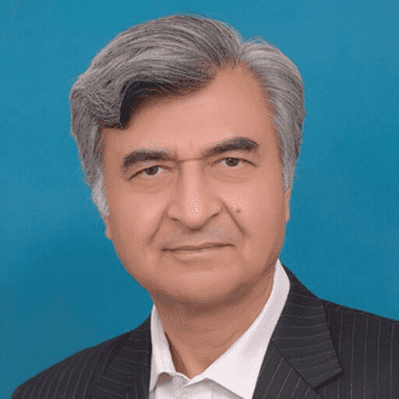Digital Terrorism Masquerading as Activism
In the mixed game environment that has been constantly shifting and changing, it is the war over hearts and minds that has taken its form more in the digital realm. The most recent one was the Twitter account belonging to @miryar_baloch which is a digital front representing India’s intelligence agency RAW. On the surface, it can seem that this kind of account might be grassroot activists promoting local causes. However, by taking a deeper look it becomes clear that this handle is among a systematic disinformation campaign against the sovereignty of Pakistan over Balochistan. A campaign which has gained twists at a time when the U.S. Pakistan relations are witnessing a new hope in counterterrorism cooperation and economic development.
What is slightly distressing in this case is that Mir Yar Baloch has a declared allegiance to Hyrbyair Marri who is a well-known mass murderer in the chapter of violent separatism. Marri is no mysterious political campaigner, he is the leader of the Balochistan Liberation Army (BLA), a group which the U.S. independently recognized as a Foreign Terrorist Organization (FTO) under Section 219 of the Immigration and Nationality Act in July 2019.
Is this diplomatic window-dressing?
No, it has some tangible legal and security consequences. It bans providing material support to the organization, permits select counterterrorism actions. Most importantly, it recognizes the violent track record of the BLA perpetrating violence against civilians, security personnel and development workers in Pakistan, particularly in Balochistan. The BLA has destabilized peace-building efforts, hindered economic projects such as the China-Pakistan Economic Corridor (CPEC) and attacked people who contribute to province development over the years.
The use of the rhetoric by Hyrbyair Marri makes @miryar_baloch not a political advocate, rather, it is spreading terrorist propaganda. This is where the borders between free speech and violent extremism must be significantly not crossed. Promoting the stories of proscribed militant organizations, in particular U.S. FTO-listed, is not activism, it is engagement in a destabilization ecosystem. That Indian media outlets that support the state also openly publicize such information only makes the geopolitical scheme underlying those campaigns another layer.
How Does Information Terrorism Undermine Pakistan’s Stability and International Norms?
This is the same as information terrorism which has a vested attempt to foster a sense of disaffection, sow doubts about the Pakistan Government and give credence to separatist violence. Such an approach contravenes the international standards on preventing violent extremism, and it contravenes the focus of the United Nations Charter on emphasizing territorial integrity of member states.
It should be stressed that there is an aspect that tends to be ignored in the online discussion, i.e., Balochistan is a constitutionally included province of Pakistan. Its resources are governed and protected by Pakistani law and sovereignty. The United States partnerships and all international partnerships work within it. Uplifting the local population of the province that consists of development (regardless of whether it is CPEC or infrastructure schemes or even security collaboration) is legitimate work that cannot be ignored.
Cyber Proxies
This is the enemy, however, to the BLA and its affiliates. The presence of roads, schools, pipelines, and ports signify integration and economic opportunity and a future not based on military service. And that is exactly the reason why those projects are being targeted and why the digital narrative tries to delegitimize them. The cyber proxies sitting back 1000s of miles away are not using the voice of the people of Balochistan; they are using the voice of an agenda, that has already taken the innocent lives of numerous people.
There is no coincidence to the reactivation of such digital assets by the Indian intelligence agency. Ever since the onset of the US war in Afghanistan, New Delhi has been unhappy over the increasing global alliances of Pakistan particularly when US and Pakistan can sync with each other. With Pakistan and India reconnecting at the times of counterterrorism cooperation and economic interaction, India thinks that it has a chance to destabilize the situation, uniting in the past causes of separatism. One of the means of this strategy is the @miryar_baloch account.
However, the stand of Pakistan on the issue is clear that terrorism, separatism, and propaganda cannot erase the geography, law or even truth. There is no way the commotion on social media can alter the reality that Balochistan is an independent territory of the Pakistani state. The hashtag cannot and will not do away with the reality of the terrorist nature of the BLA in law. And no international propaganda can hide the fact that the regular citizens of Balochistan province are the first people to suffer the consequences of the violence of separatists.
The international community and particularly social media such as X should understand that they also have a role to play in this struggle. Not taking an action against the accounts that are known to support the prohibited terrorist organizations would not be a neutral position, rather, quiet consent. It justifies fundamentalist opinions, provides them with a global platform and accepts the fact that terrorism is merely an alternative political opinion. This is not free speech, it is a loophole that is taken advantage of by those who do not subscribe to democratic means but armed violence.
Nor is the solution difficult or unheard of. The policies used by social media companies in discouraging the promotion of terrorism and the aid to declared terrorist groups are also clear. Enforcement is, however, uneven particularly when the books under investigation are in the geopolitical interest of influential states. Such close sightedness should come to a stop. As much as platforms have taken tough measures against ISIS, al-Qaeda and right-wing extremist propaganda, they must similarly show zero-tolerance to accounts that are associated with the BLA and its foreign like-minded cells.
In the end, it is not even a matter of the internal stability of Pakistan. It deals with the integrity of the information space around the world.
When platforms enable state-sponsored proxies to pose as grassroot activists, and push the agenda of trusted terrorists, it sets a precedent which international security will live to regret in the next few decades. The same will be done in other states as they will use social media to use against their enemies. Commons will fall into a battleground where no rules are followed, and the sole prize will be the casualties of the civilians online and offline.
The decision the international community has is black and white. We either stand firm that we have no tolerance with terrorism whether armed or digital, or we run the risk of letting malicious individuals with an appetite for chaos and bloodshed take over the platforms. When it comes to @miryar_baloch, nothing is more evident, it is not an activism but a continuation of a terrorist ploy with the assistance of a foreign intelligence and intent on destroying a sovereign nation.
Pakistan will have to continue the path of resilience. Coupled with reinforced alliances, whether regional or global, investment in development, and the public exposure of the disinformation machine, the state will be able to curb the effects of these cyber-attacks. To the other parts of the world whose main work is managing the various systems in which this war is fought, it is not too late to take decisive action.
The mountainous terrain of Balochistan and the chronological history of social media should not be used as the place of haven of terrorism.
Disclaimer: The views and opinions expressed in this article are exclusively those of the author and do not reflect the official stance, policies, or perspectives of the Platform.








